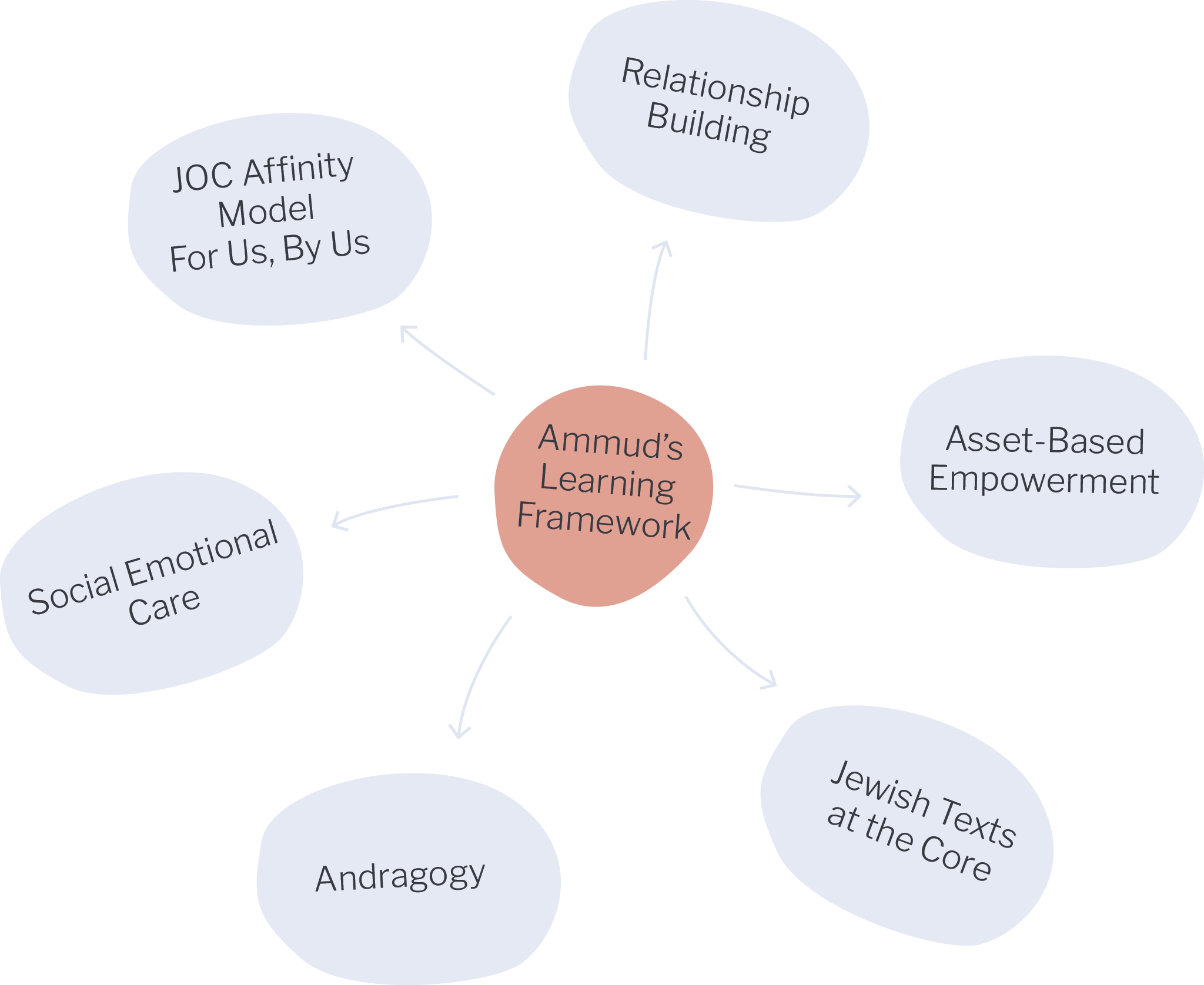
Ammud’s Learning Frameworks
JOC Affinity Model/For Us By Us: JOCs are the leaders, teachers, students, and creators of our programming.
Asset-Based Empowerment: We appreciate and validate the unique experiences and cultural back- grounds of all learners in the room, benefiting greatly from their deep wells of knowledge which are so vital to understanding and making sense of Torah.
Social Emotional Care: We prioritize the social and emotional lives of Ammud learners.
Andragogy: We take the science of adult learning and integrate it fully into our classes.
Jewish Texts at the Core: We read every word of the Torah. Together, in community, we wrestle with, delight in, and make connections to every passage.
Relationship Building: We intentionally design classes so that learners not only gain deep knowledge and insight, but also build friendships and feel nurtured by Ammud.
Why do we need affinity spaces? Often JOCs are attracted to Ammud for the social and emotional safety as many of us have experienced the interrogation of how we’re Jewish, assumptions of not being Jewish, or implicit to explicit racist remarks in Jewish learning spaces. The JOC affinity based model was created at Ammud as a response to experiences of racism and feelings of isolation.
What is FUBU? For Us By Us is a concept gaining traction that does not only exist at Ammud. There are plenty of FUBU spaces and organizations across the world. For example, a local mom group can have their motto be “for moms, by moms” or a teen group saying their programming was “created for teens by teens.” At its essence, it means that the space was created by and for the people the space is serving. The FUBU model lessens tokenizing and out-of-touch damage that can be caused when something is created for a particular group, without being connected to the group being served. At the core of Ammud’s model, especially our Community-Centered Torah Learning pillar; JOCs are the leaders, teachers, students, and creators of our programming.
Why FUBU and Jewish Learning? Countless studies show that there exists a direct link between students’ experiencing racism or being afraid of experiencing racism and negative physical, emotional, and health outcomes as well as a negative impact on learning. At Ammud, the fear and reality of experiencing racial and ethnic discrimination is lessened and learners are able to access Jewish learning in a comfortable environment.



